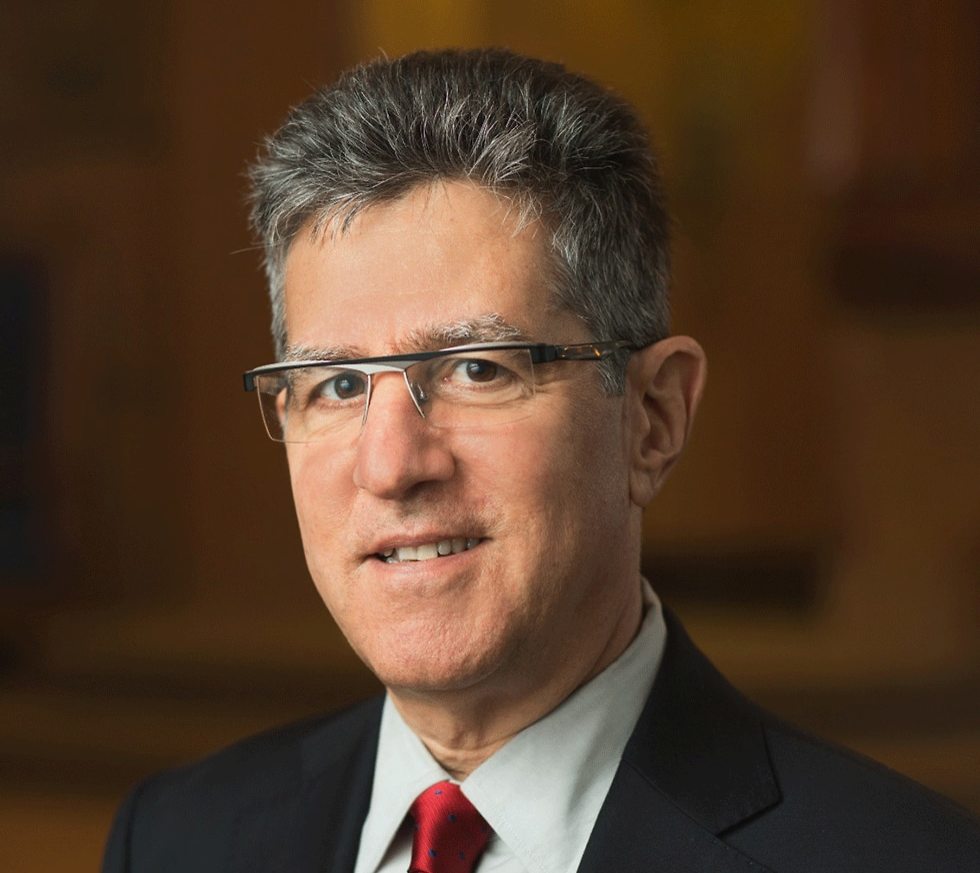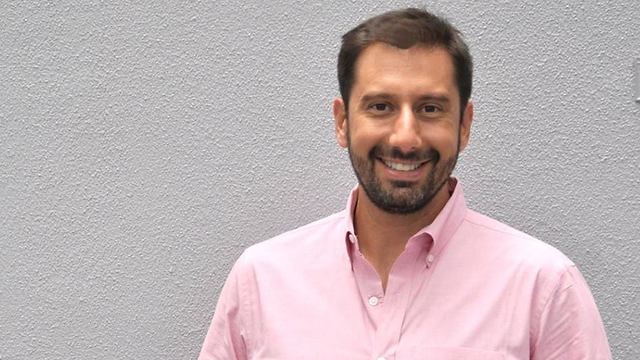
'People turn to me, broken: What's happening to our Israel?’
It's almost cliché to say that the crisis between American Jewry and the State of Israel is unprecedented, but it’s only getting worse. The Nationality Law, the Surrogacy Law, and the detention of Rabbi Haiyun has sunk the liberal Jewish community into deep depression.
It has been a long time since we've found American-Jewish voices so critical of Israel. For decades, Israel has taken American Jews’ love and support for granted, and they stood by and worked tirelessly for the Jewish homeland throughout every crisis.
But something new is happening. More and more young Jews are unable to find a connection to Israel, and against the backdrop of recent news coming out of the only democracy in the Middle East, many of them are quick to do what they have never dared to before: criticize and distance themselves from it.
In the past few weeks, things have seemed to get even worse. With the latest contentious legislation Israel passed at the end of the Knesset's summer session, the international news media has largely ignored the harsh internal criticism it faces at home. Instead, the focus is on the criticism from abroad, such as the claim made publicly in media bodies such as The New York Times that Israel is no longer the democracy it aspired to be.
The Nationality Law passed a few weeks ago is a Basic Law whose purpose is to anchor the national values of the State of Israel with a binding legal status. The law states that Israel is the nation-state of the Jewish people, and that Jews have a natural right to self-determination. The law codifies the official status of the state’s symbol, flag, and anthem, along with the Jewish calendar, Jewish holidays and the Hebrew language. The law also states that Israel will encourage Jewish settlement, and that greater Jerusalem is the capital of Israel, and it reduces the status of Arabic from an official language to a language with special status.
Just a day before the Nationality Law passed, various amendments to a surrogacy law were approved, expanding the circle of women entitled to surrogacy, but rejecting those that would have included same-sex couples.
We spoke to several Jewish leaders about this complex reality, what they’re hearing from their communities, and how they think the American-Jewish support for Israel will change in the coming years.
“The last few weeks have been a catastrophe,” says Rabbi Ammiel Hirsch, senior rabbi at Stephen Wise Free Synagogue on Manhattan’s Upper West Side. “The Nationality Law, for example, presents a serious problem. The law is perceived as racist by Israel's critics, and therefore makes it harder for the rest of us to defend Israel. It is unnecessarily provocative, and certainly could have been drafted to be more inclusive.”
“Jews in the Diaspora are sensitive to any deterioration of democratic values,” Hirsch says. “When Jews here hear about things like the Surrogacy Law, which clearly discriminates against LGBT couples, through channels such as The New York Times, they do not recognize or appreciate the debate going on in Israel. They see the move as an anti-democratic, populist and insensitive act.”
“This perceived disturbing loss of democratic values in Israel makes it impossible for Diaspora communities to stand firmly with Israel. It's extraordinarily harmful,” he notes.
Hirsch is an enthusiastic Zionist, and, although he is American, he speaks fluent Hebrew. Over the years he has been working for Israel, raising funds, organizing visits and infusing his great community with love for Zionism. But for many months it has sounded different.
“I am a rabbi, a Zionist, and my identification with Israel does not depend on who is serving as prime minister. But there are very few Jews outside of Israel who support the latest developments—and even Orthodox Jews see the Surrogacy Law as problematic and discriminatory. The treatment of others, especially LGBT individuals, has become a barometer for a society’s democratic values, and when Jews look around the world and see such discrimination, they automatically associate it with less enlightened countries.”
One of the most difficult issues for US Jews, the majority of whom are Conservative or Reform, is the arrest of Rabbi Dov Haiyun. A few weeks ago in Haifa, the Conservative rabbi was detained for police interrogation under the guidance of the Chief Rabbinate, because the court claimed that he was performing illegal marriages. A storm followed, with rabbis, members of Knesset, public figures and organizations condemning this overstep, but it was too late:
“This came after years of discrimination against the non-Orthodox movements,” Rabbi Hirsch said. “The Jews here felt as if their own rabbi had been dragged out of bed at five in the morning—and for what? For fulfilling his role as a rabbi?”
Rabbi Josh Weinberg, president of the Association of Reform Zionists of America, gave similar sentiments. “When Israeli police interrogated Rabbi Haiyun at five in the morning, it made Israel look like the Taliban regime,” he said. “How can it be that in the ‘startup nation,’ the police stop a rabbi for having a chuppah at a wedding?”
Weinberg, also an American who speaks Hebrew fluently and who has been working to support Israel for many years, is appalled at the situation.
“We see a clear process of Judaization and an attempt to turn the ultra-Orthodox into the only legitimate stream. We work with communities throughout America, hosting seminars and all kinds of activities to strengthen Israel, but the situation in Israel is sabotaging our Zionist effort here. We are trying to teach people here to love Israel and strengthen their connections to the Jewish homeland. At this stage it doesn’t really matter how controversial these new laws have been within Israel. The bottom line is that it feels like a slap in the face. There have been all sorts of negative developments in Israel—cases of racism, poor treatment of asylum seekers and Ethiopians, the conversion law, the failed Western Wall compromise, and so much more,” he laments.
“We're walking a fine line,” Weinberg says. “We're motivated to support Israel. We will not stop donating—on the contrary. Now we must invest even more in financial and moral support for our movements and for the state of democracy in Israel.”
Weinberg says that ARZA is in the midst of a fundraising campaign to strengthen Conservative and Reform communities in Israel. “We have recently felt that Israeli democracy is disappearing,” says Weinberg. “The value of equality that is imposed on the Torah scroll is no longer valid. We ask how it is that we are sympathetic and defending Israel while they make it so hard for us.”
It is important for Weinberg to emphasize that the problem is not only, as is commonly thought, among young Jews. “Everyone talks about young people’s detached attitudes toward Israel, but I’ve started seeing older people, who have supported Israel for decades, begin to give up. The gap between these two large communities is only growing.”
Hirsch agrees. “The younger generation in general finds it difficult to connect for many reasons. They have even more difficult challenges from a Jewish perspective. But there is hardly a young person who understands these latest developments coming out of Israel," he says.
"Dealing with tens of thousands of Palestinians in Gaza is defensible, but this new challenge is not. How can I explain something that I myself think is illegitimate—arresting a rabbi at 5am in his own home? The long-term damage is irreversible. We will not be able to get their support back. They did not grow up during the Holocaust, or live through the first years of Israel’s statehood, the Six-Day War, or the quest to save Soviet Jewry. They were born years later.
“But it’s not only them. Members of the community who have stood by Israel’s side turn to me broken, explaining that it is difficult for them to continue fighting in the face of this new reality. I received an email today from a very active and loyal community member who asked me what happened to our Israel. How could all this happen under the watch of a prime minister who says that Israel is the nation-state of the Jewish people? And I agree with him. Israel does not exist only for its citizens, but for the entire Jewish people. He is doing harm to this principle, and acting in a historically irresponsible manner. Netanyahu claims that he understands and is most sensitive to the American-Jewish point of view, and that his only interest is to strengthen the Jewish people—but he himself is the most damaging of all.”
Both Hirsch and Weinberg understand and admit it’s difficult to reach out to the Israeli public, which in most cases is not sufficiently aware of the crisis that is taking shape.
“I do not know how to connect with Israelis and make them understand this,” says Hirsch. “We must strengthen our movement in Israel, connect with and influence members of the Knesset, and fight in the court of public opinion. Israel must understand that while the current government will not always be in power, the bill will be paid. We are losing the center and left of the American polity, and this is happening under a leader who considers himself an expert on American Jews.”
“Liberal movements in Israel must be organized and strengthened, and Israelis must understand the impact their choices have on US-Israel relations,” says Weinberg. “The prime minister already admitted in September that while Reform Jews want recognition, they cannot accept it in Israel.”
Hirsch concludes: “My motivation has not decreased, on the contrary. But our work has become much more difficult. A leader has to have an army, and the army is shrinking. Ultimately, if the Haredi monopoly on politics and religious life in Israel continues, Israel will be supported primarily by the political right only. Everyone else, including most Jews, will treat Israel as a country whose democracy is flawed.”



















